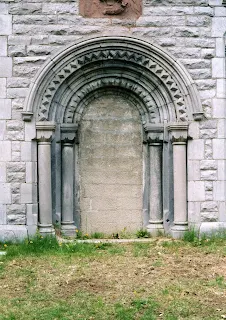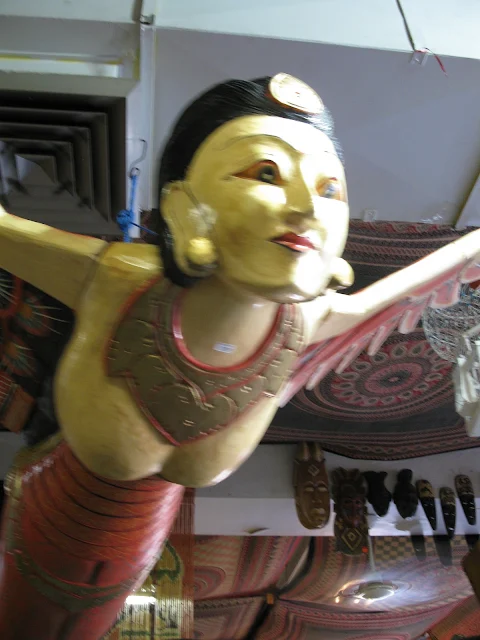
Thursday, September 18, 2008
Monday, September 15, 2008
Friday, September 12, 2008
Thursday, September 11, 2008
Wednesday, September 10, 2008
Sunday, September 7, 2008
Friday, September 5, 2008
The Shaman’s Way
Years ago—in the early 1970s—my brother gave me a large woodcut entitled “A shaman on the back of a grizzly.” I had this on my bedroom wall, in different bedrooms, for many years. Looking back now, I see how important shamanism has been to my creative, spiritual, and personal life. In fact, it was staring down at me all those years ago. Shamanism is mankind’s oldest form of spirituality. It is the spirituality of our most distant ancestors.
The shamanic journey—the shamanic way—gives cohesion and meaning to pivotal experiences in my life. I do not renounce my western traditions or my life in the 21st Century, but I can better understand my own existence, my concerns in poetry, because of shamanism. Shamanism does not displace the contemporary, it deepens and widens and co-exists with our understanding of the contemporary. As well, shamanism has helped me to understand experiences I have had; it has helped me to better understand my own life, spirituality, and what I had intuited from an early age regarding my concerns as a poet. Let’s just say, shamanism was always in my unconsciousness, waiting to surface, like ancestral memories.
The image of the shaman on the back of a grizzly—the image on the woodcut—entered my psyche and, looking back, became a part of my inner being. It made a deep enough impression on me at the time that, in 1972 or 1973—probably not long after I was given the woodcut—I wrote a poem, “a shaman on the back of a grizzly,” using the woodcut as a narrative for the poem. The shaman sitting on the back of a grizzly bear, incongruously almost as big as the grizzly; always riding “bear back”; always staring directly at the viewer; always the expression of surprise and worry on the shaman’s face; the shaman and the bear always appearing from some unknown and unknowable psychic place and always departing to some other place that is unknown and unknowable, and always in the continuum of existence.
“a shaman on the back of a grizzly”
a shaman on the back of a grizzly
the black fur a black streak
moving between the trees
then across an open grassy field
a shaman eyes blackened
hair hanging limply down over ears
& arms holding to handfuls of bearskin
he leans slightly forward
knees pressing to flanks
the grizzly face down & mouth open
a bewildered look on his face
we see the white of his teeth
we see the shaman mouth open
we see him see us
we see them disappear back into the forest
they see us disappear back into the forest
we see them disappear back into the forest
we see him see us
(1972-1973)
Thursday, September 4, 2008
Saturday, August 30, 2008
Friday, August 29, 2008
Fairy Land, Montreal
Thursday, August 28, 2008
Wednesday, August 27, 2008
Thursday, August 21, 2008
Saturday, August 16, 2008
Saturday, August 9, 2008
Tuesday, August 5, 2008
A Statement: All Art is Vision
After seeing Huichol yarn paintings in Galeria Uno in Puerto Vallarta: The art of the Huichol shaman is created only when in a peyote trance vision. All art, then, is vision. This is different from the way most art is created by Western artists who are in the grip of the “art production assembly line."
For many years I searched for this clue to my own approach and understanding of art. It is what I intuited in late 1960s when I began experimenting in my writing, when I attempted to write outside of the narrow linear and rational mind, when I was absorbed in experiments attempting to short circuit the rational mind. Now a shamanic approach has been articulated to me, an approach that I can identify with.
I place my heart in the visionary’s approach. My identification of myself as a poet has always been outside of the mainstream of the poetry community. I was never very much a part of any poetry community as they rarely expressed my concerns in poetry.
Written on 19 November 1984, Puerto Vallarta, Jalisco, Mexico; Huntingdon, 1991; Montreal, 2008.
For many years I searched for this clue to my own approach and understanding of art. It is what I intuited in late 1960s when I began experimenting in my writing, when I attempted to write outside of the narrow linear and rational mind, when I was absorbed in experiments attempting to short circuit the rational mind. Now a shamanic approach has been articulated to me, an approach that I can identify with.
I place my heart in the visionary’s approach. My identification of myself as a poet has always been outside of the mainstream of the poetry community. I was never very much a part of any poetry community as they rarely expressed my concerns in poetry.
Written on 19 November 1984, Puerto Vallarta, Jalisco, Mexico; Huntingdon, 1991; Montreal, 2008.
Monday, July 28, 2008
Subscribe to:
Posts (Atom)
















































